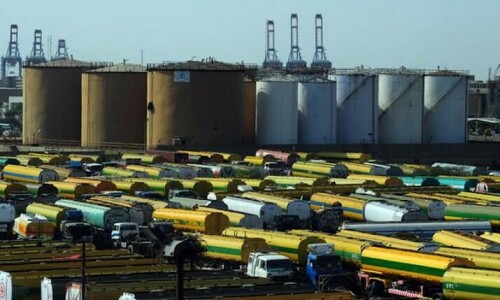WASHINGTON, April 8: Migrant workers send home about $100 billion in cash a year, the single largest source of foreign exchange in many of the world’s poorest countries, the International Monetary Fund said on Thursday. In its semi-annual World Economic Outlook report, the IMF urged governments to make it easier for migrant workers to send money home by cutting transfer costs, which often cut into five per cent to 10 per cent of the amount being send.
In a topic the IMF said had received little attention, it said a country like Mexico probably receives about $15 billion a year in remittances, while in many Caribbean nations’ remittances often exceed 10 per cent of gross domestic product.
It noted that unlike exports and private capital flows, which are sensitive to global economic conditions, remittances have proved more resilient to economic downturns.
Between 1990 and 2003 countries like India, the Philippines, China, Pakistan, Morocco, Bangladesh, Colombia, Egypt and Turkey were the largest recipients of remittances, the IMF said.
After the United States, the top sources of remittances were Saudi Arabia, Switzerland, Germany and France.
But the global lender said governments could do more to encourage additional remittances, which often exceed export revenues, foreign direct investment and other private capital investments in developing countries.
However, it acknowledged that with governments more watchful of terrorism and money laundering, such changes would have to be carefully thought out, so that remittances are better monitored without causing them to dry up or go further underground.
“Significant benefits might flow from measures to reduce the cost of sending remittances, for instance by removing barriers to entry and competition in the remittance market,” the IMF report said.
The money often helps families in less well-off countries spend more on housing and education.
The funds are also often used to set up small businesses, which stoke local economies and can help promote financial development in cash-based economies.
“Remittances can help improve a country’s development prospects, maintain macroeconomic stability, mitigate the impact of adverse shocks, and reduce poverty,” the IMF said.
—Reuters
















































Dear visitor, the comments section is undergoing an overhaul and will return soon.